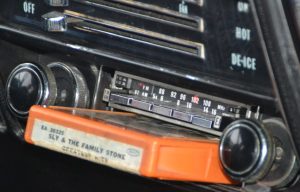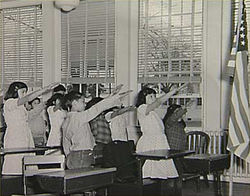As many do, I have old people in my life. With meaningful benefits, such as access to their perspective and experience, come certain obligations. My primary old person, for example, is incapable of having a conversation with me without asking me to fix something computer-related. I have learned to accept that this, along with an increased susceptibility to scams, is just part of being an old person. There is another old person behavior, however, that affects the old and non-old alike in a more concrete way than merely frustrating conversations like, “Now, click the hamburger. No, the three horizontal lines in the corner. Because it looks like a hamburger. No, left click. No, single click…”
The Golden Age
I routinely receive emails with subject lines like “Fwd: BLACK & WHITE TV,” “Fwd: The Irish Divorce” and even “FW: FW: RE: Fwd: The Truth about Getting Old.” If you have your own old person, you get these, too. The general theme hearkens back to a simpler time when you did not have to lock your doors, deals could be done on a handshake, and underpants covered your ass. The impression given is that people who grew up in these bygone days possessed more common sense and were just generally more rugged and self-reliant (a riff on the classic noble savage fallacy). For flavor, these messages are often liberally peppered with shitty clip art1 and passive aggression toward Millennials.
The problem with golden age thinking is that it drips with selection bias. For every smug quip about “We used to snag a bite of raw hamburger from the counter where Mom had left it thawing, and we didn’t get E. coli,” it’s easier than pistol whipping a blind kid to counter with “Well, there is a lot more literal shit in the meat nowadays.” Or “…not a single person I knew had ever been told that they were from a dysfunctional family,” with “What in the actual fuck are you talking about? Your Uncle Ernie had his special ‘night ‘night games, your father punched your mother in the gut so the bruises wouldn’t show, your mother had a vodka bottle in the toilet tank, and your brother was as gay as a French horn but entirely lacked the support system or even the vocabulary to do anything about it.”
My intent is not to strip the old of their illusions. I’ve got more miles in the rear view mirror than ahead, and I, too, enjoy nostalgia’s pink glow2. But in order to believe the old days, any old days, were objectively better, one has to dismiss or bury all kinds of pretty terrible stuff. Polio and Jim Crow-level stuff. Worse is when people (and not just the old) elect politicians who invoke these Golden Age tropes. This is simply pandering or, in some instances, a dog whistle3 for, “I will restore your lost entitlement by hassling brown people.” Regardless, it is regressive and myopic and ultimately impossible.
The Golden Age is fool’s gold.
Or, lately, a fully kitted out Oom-pah band.↩


